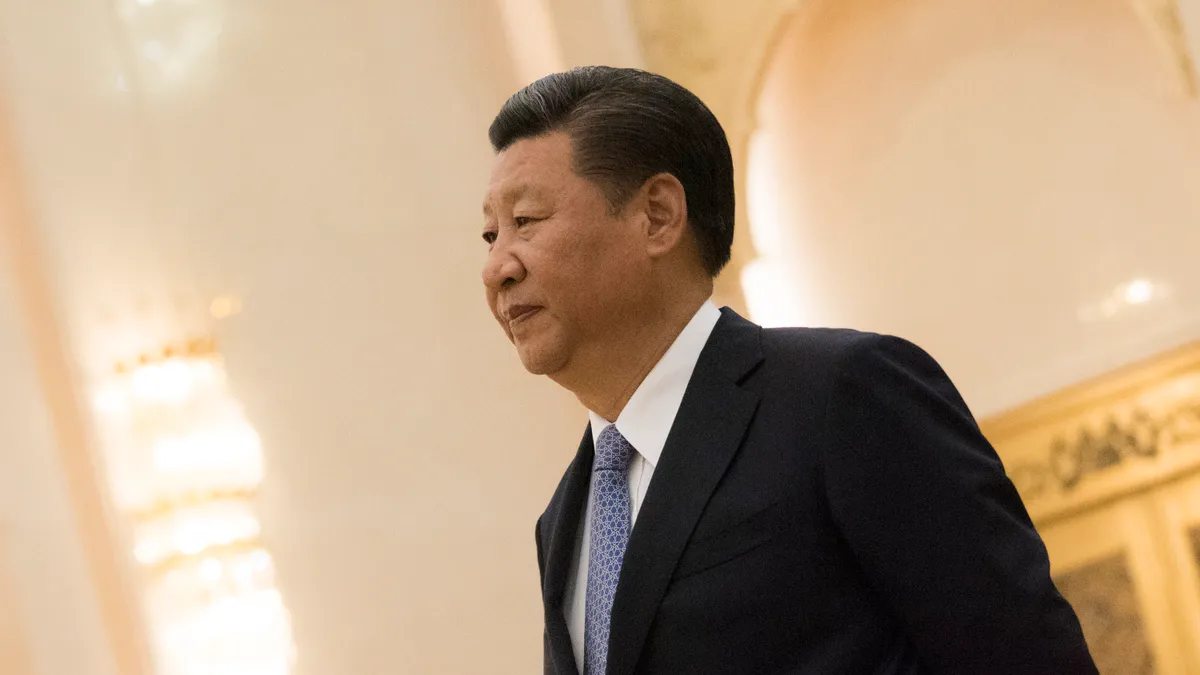Dive Brief:
- China has retaliated with plans for its own 25% tariffs on $16 billion worth of imports from the U.S. in response to a matching tariff announcement from August 7. These tariffs are scheduled to take effect August 23, the same day as U.S. tariffs, and bring the total to $50 billion worth of goods.
- The affected goods include multiple categories of scrap material — including recovered fiber, plastics and various metals — as reported by multiple outlets.
- In a statement, ISRI said "there is no doubt that these tariffs will impair the already diminishing scrap exports from the United States to China." SWANA CEO David Biderman wrote that "if implemented, this will likely reduce waste paper and scrap plastic exports to China to de minimus levels." NWRA noted that companies are already "struggling to improve recycling quality" and said "these new tariffs will make it even more challenging and put our member companies at a competitive disadvantage over those from other countries."
Dive Insight:
China's initial 2017 scrap import restrictions and tighter contamination standard affected countries around the world and were seen as more influenced by internal politics than anything to do with foreign relations. The country was already said to be on the path of banning all scrap imports by 2020 as part of its "Blue Sky" environmental initiative to become more self-sufficient with resource management.
Though as talk of a trade war began to ramp up earlier this year, some in the industry had begun to worry that if nothing else, it would make China less likely to negotiate on any of its positions. Biderman was among them, saying this spring the trade situation was "problematic because we don't control our own destiny in this area." ISRI has also raised this topic in presentations and tracked the effects of prior tariffs on steel and aluminum.
While those tariffs have affected both commodity and equipment pricing — and may even help companies such as Covanta — they didn't raise the same level of concern caused by this latest announcement. ISRI has reported scrap exports from the U.S. to China were already down 24% for the first half of this year, but the country is still a major buyer of recovered paper and certain plastics. As shown by the ongoing announcements of Southeast Asian countries limiting or restricting their own imports, no one else can step up to fulfill that demand.
By making it more expensive to export this core group of commodities that are already incurring higher processing costs due to the 0.5% contamination standard, China may effectively be shutting off U.S. scrap imports ahead of 2020. Based on rhetoric from President Trump about even more tariffs in the future, this situation isn't expected to get resolved in the near term.
That could mean further disruptions for local recycling programs, higher fees from recycling companies and potential short-term displacement of more material if it can't find a home. As NWRA noted, it could even affect some containers already on the multi-week journey to Chinese ports.
Though in a silver lining for industry optimists, it may also accelerate the urgency around developing more domestic and alternative markets to help the U.S. become as self-sufficient on scrap as China now aims to be.















